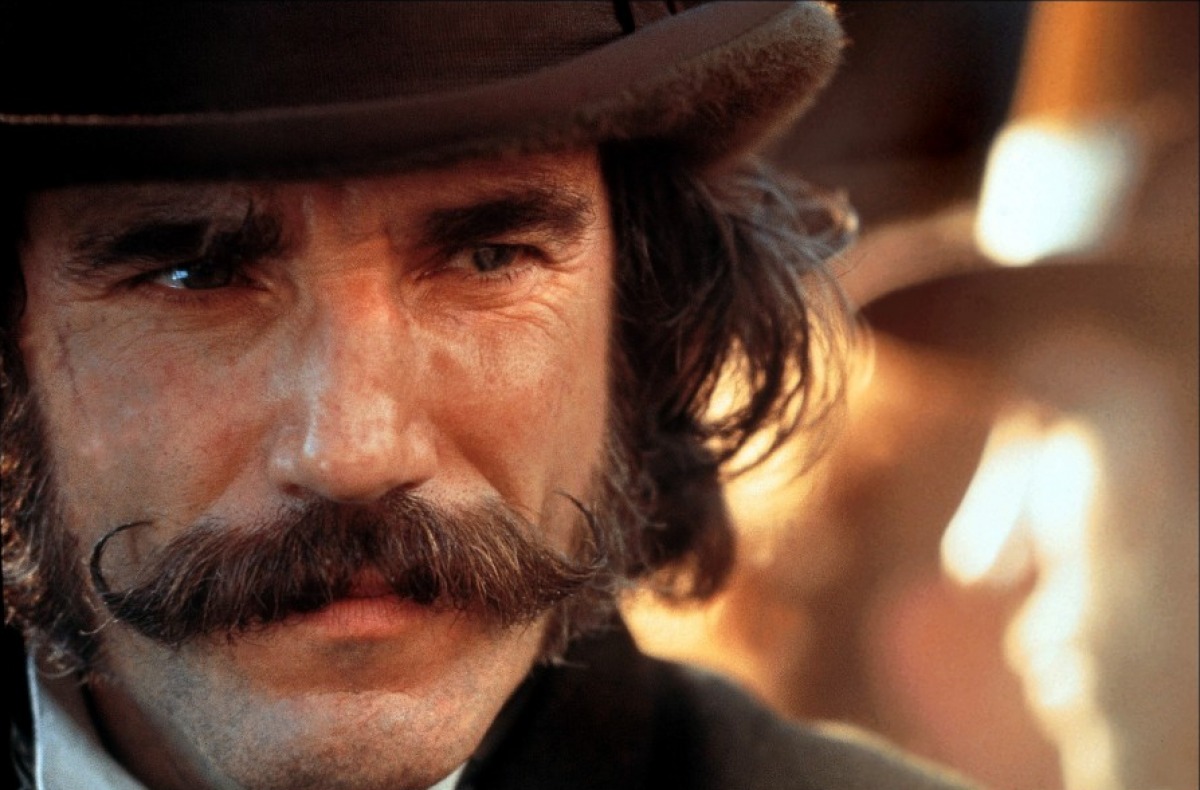
The American Civil War (1861-65) was a catastrophic moment in US history. From the moment Confederate troops opened fire on Fort Sumter to its conclusion four years later, almost a million young Americans lost their lives, often to friends, family or neighbours. Naturally this is fertile ground for cinema, and here are eight of the best.
1. Red Badge of Courage (1951)
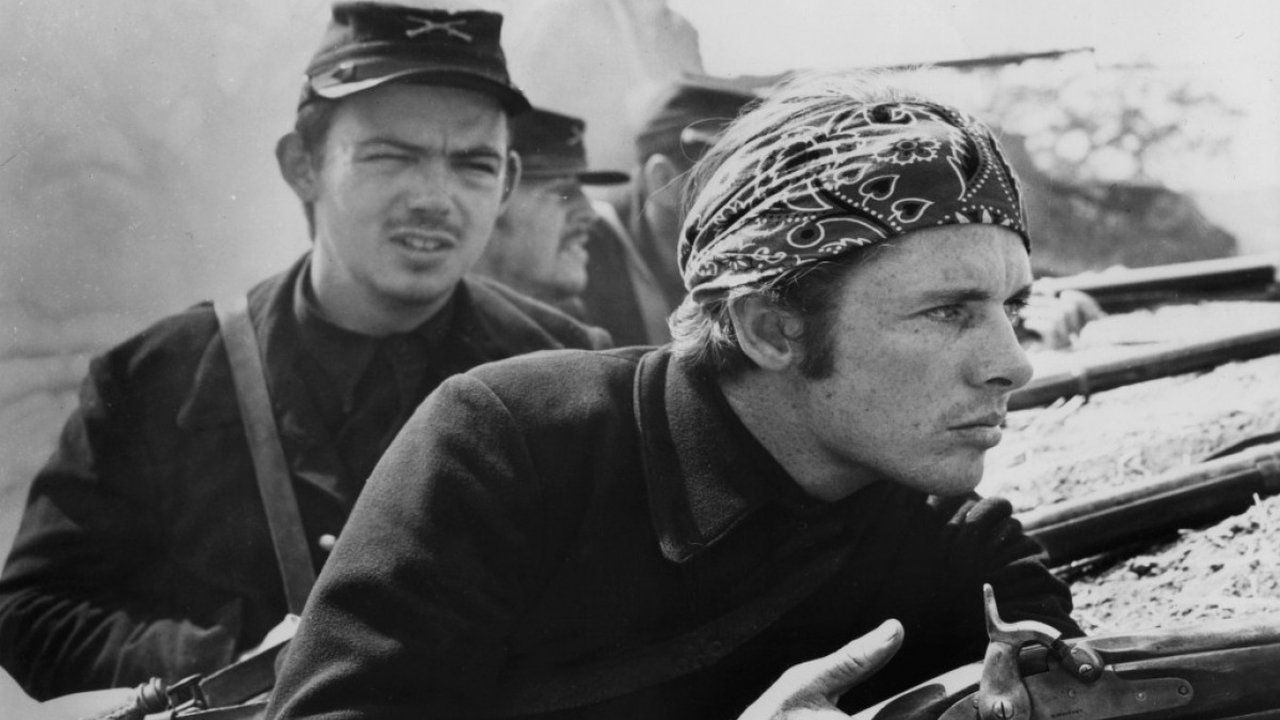
More familiar for his crime noir outings, The Maltese Falcon (1941) and The Treasure of the Sierra Madre (1948), John Huston’s film is considered a classic of the genre. Utilizing the same gritty monochromatic realism, he depicted war as a human experience rather than underscoring flag waving, drum beating or youthful sacrifice for whatever cause.
The hero, a Union private, flees from a battlefield. Overcome with shame, he yearns for the titular ‘red bage’, the wound that will bring redemption. Ironically, the deserter was played by Audie Murphy, the most decorated American veteran of World War II.
2. Ride with the Devil (1999)
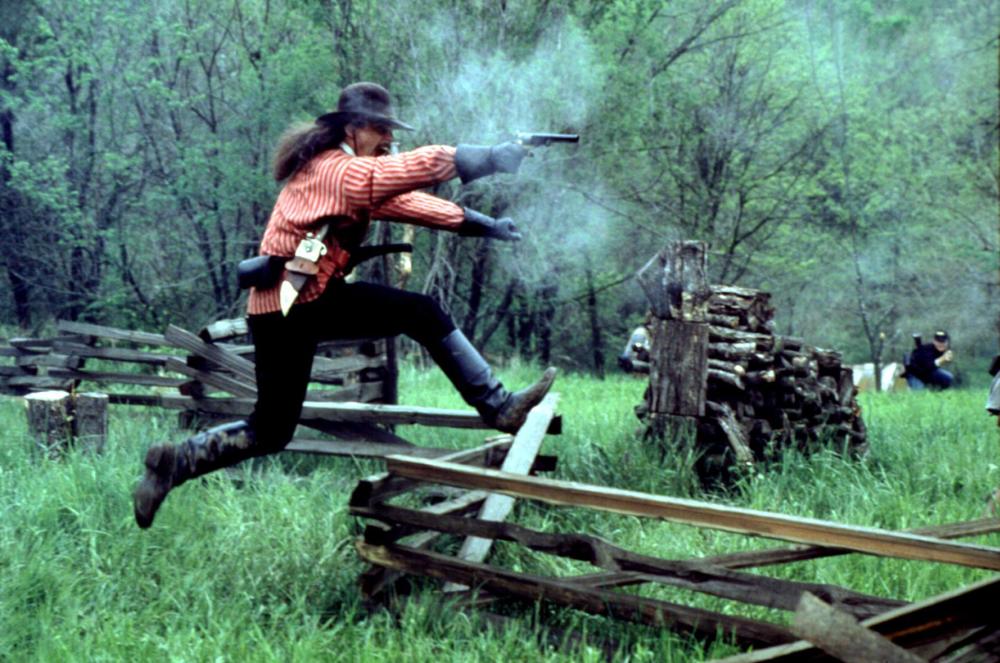
Ang Lee’s feature cost a reputed $38 million, only to bomb at the box office. This shouldn’t detract from fine performances from an enesemble cast, including Tobey Macguire, Skeet Ulrich and Jeffrey Wright.
The setting is far removed from the traditional clash of blue or grey uniformed armies in the eastern states. Instead the action takes place in Kansas and Missouri, where the north versus south fighting is enacted by rival bands of guerillas. In this pitiless war of attrition, civilians are invariably caught in the middle. In one episode an attack by southern Bushwackers on the anti-slavery township of Lawrence is vividly realised.
Lee manages to capture the naiive optimism of Macguire, who sees the war as about writing wrongs in internecine feuds, pitted alongside the sadistic savagery of many of the Confederate militia, such as John Caviezel’s Black John Ambrose, or Jonathan Rhys Meyers’ Pitt Mackeson, who are psychopaths.
3. Glory (1989)
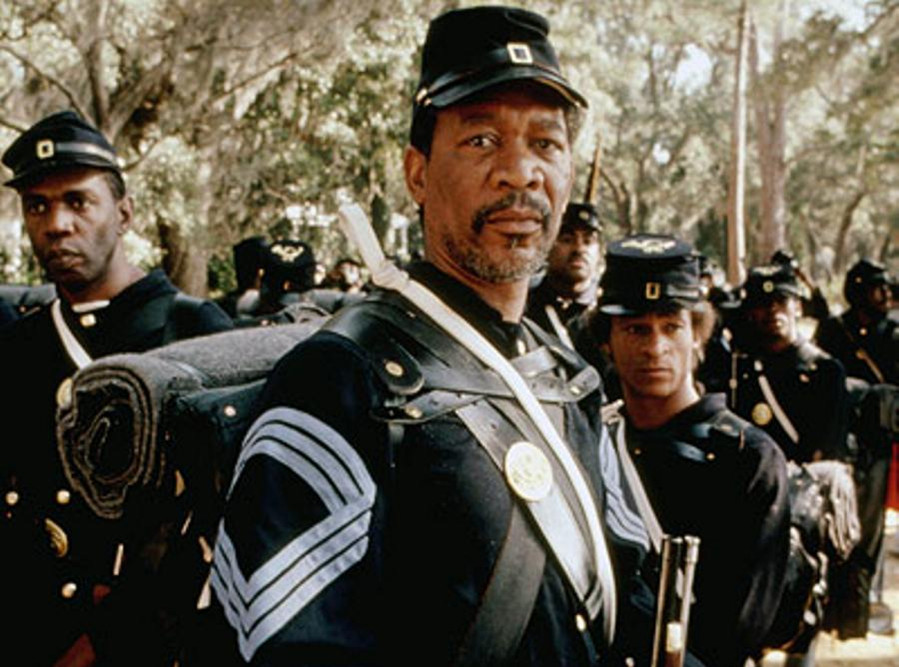
Based on the personal letters of a northern officer, Colonel Robert Gould Shaw, Edward Zwick’s film is about one of the first Union regiments to recruit solely African American combatants.
Matthew Broderick gives a fine performance as Shaw himself, a man of letters and an idealist with deeply held principles. Morgan Freeman is masterful as Sergeant Major John Rawlins, but the film belongs to Denzel Washington, who won an Academy Award for his portrayal of Private Silas Tripp, a man seething at the injustice he sees on all sides, not just the rebels.
4. Gangs of New York (2002)
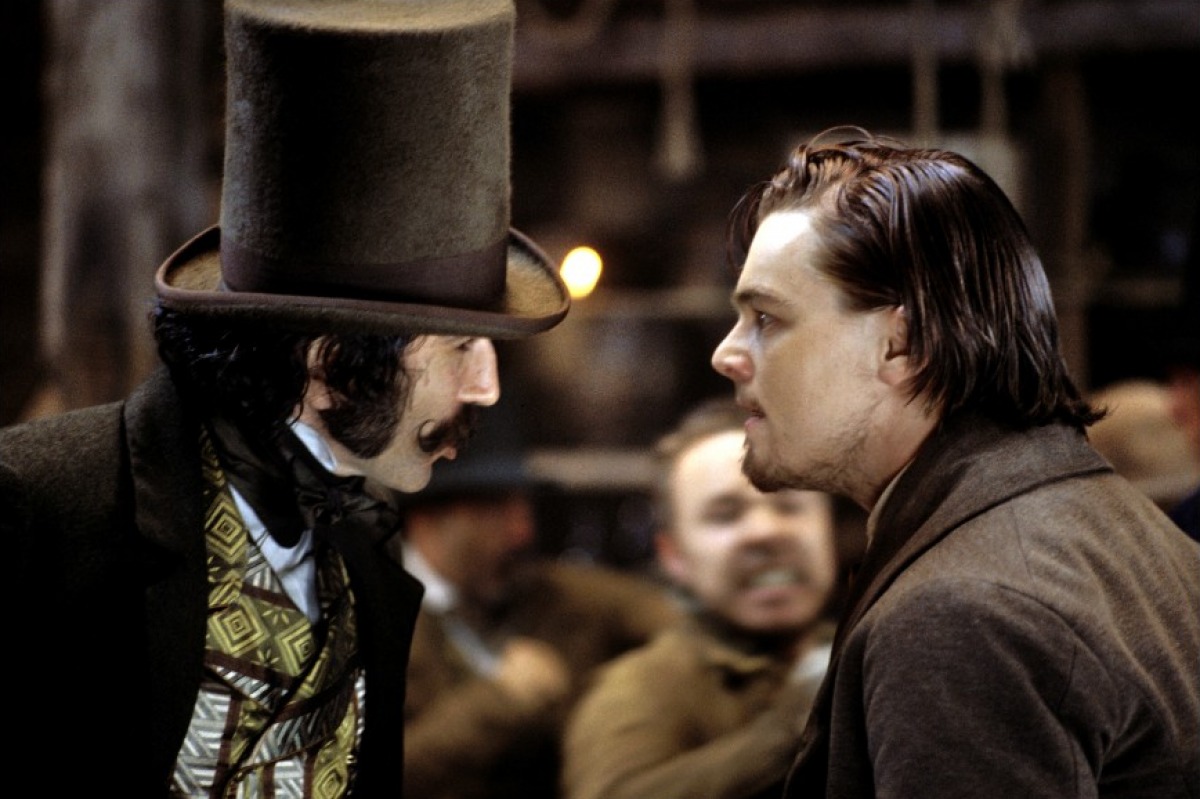
Martin Scorcese, more familiar with gangs toting AK47s, turned his attention to mid-19th century New York for this all-star feature. Although the narrative is essentially about the struggles of various communities against the backdrop of a cultural melting pot that was in its infancy, the timeframe is 1863, the war’s mid-point.
The film showcases an incident often overlooked: the Draft Riots. Here was America’s first example of its impoverished working class males being conscripted at gunpoint to become cannon fodder. Because the sons of rich families could avoid this by donating $300 (equivalent to $5,000 today) feelings naturally ran high.
In a grotesque irony, in a war supposedly instigated by the desire to abolish southern slavery, African Americans are singled out by the Yankee lynch mobs. The film excels at spotlighting how the ethnic squabbles between rival Irish, Jewish and Italian communities eventually dissolved in the face of the Union army excesses.
5. Cold Mountain (2003)
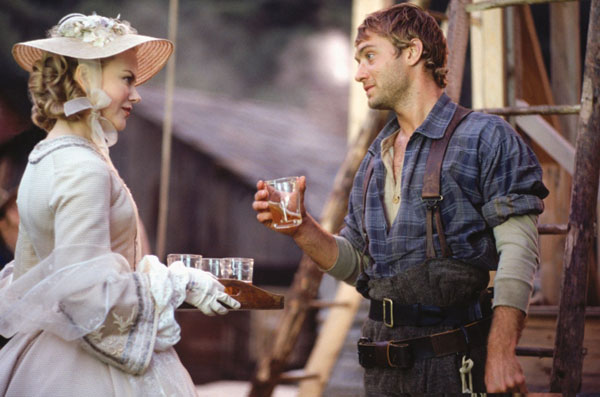
Written and directed by Anthony Minghella, the opening sequence is jaw-dropping. Union troops are laying seige to Petersburg, Virginia. A mine is detonated beneath the Confederate defenders that blows many to atoms, only to create a massive crater. As the attackers pour across no man’s land they tumble into this hole where the rebels pick them off.
After this powerful introduction the film enters a more introspective period, as deserter Jude Law embarks on a cross-country odyssey to be reunited with his recent bride, played by Nicole Kidman. Rene Zellweger bagged an Oscar for her fiesty frontierwoman.
6. Friendly Persuasion (1956)
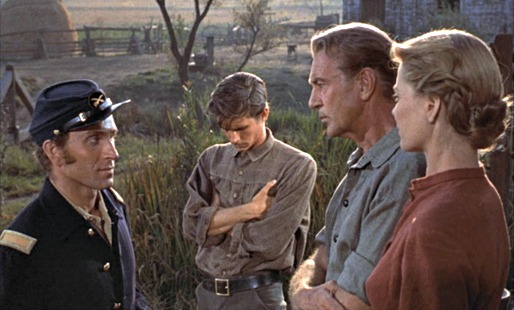
This feature highlighted the moral tension placed on pacifism in the face of brutality. Gary Cooper plays the head of a Quaker family living in Indiana. The war is something their beliefs determine they cannot contribute to.
Confederate militia put these convictions to the test by slaughtering a neighboring community. The eldest son, played by Anthony Perkins, picks up a rifle and resolves to give an eye for an eye. When he is injured, his father is forced to go out looking for him, questioning his own principled stance.
7. The Good The Bad and The Ugly (1966)
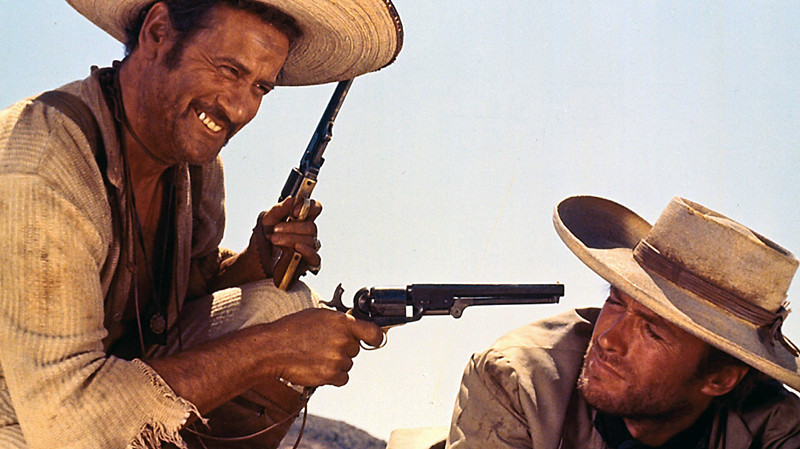
By many accounts one of the greatest westerns ever made, far less one with a civil war backdrop, Sergio Lione intended imparting the lesson that the conflict was never about good guys versus bad guys, even if the bad guys wanted to keep slaves. When Clint Eastwood and Eli Wallach are captured by Union soldiers, they are tortured.
The director also shows the pointlessness of war. Union and rebel troops battle over ownership of a bridge neither side doesn’t really need. America was already getting embroiled in Vietnam by this point, so as an observation on war in general it was prescient.
8. Outlaw Josey Wales (1976)
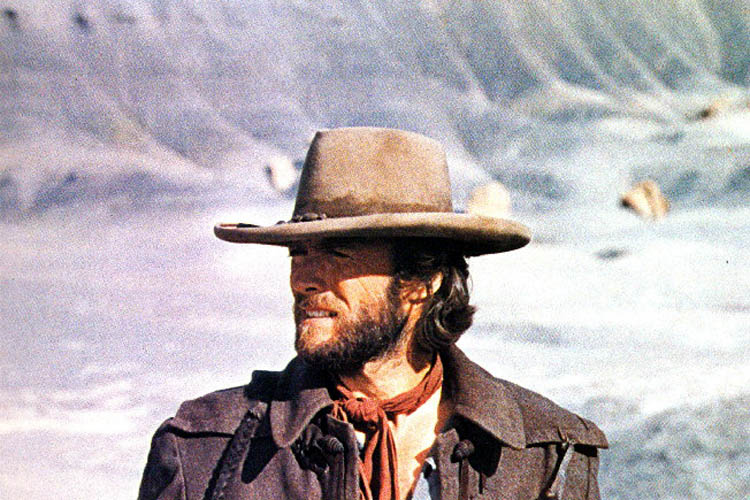
Directed by and starring Clint Eastwood in the titular role, he reprises his spaghetti western persona of the cool, calculating gunslinger. This time he channels his lethal marksmanship towards avenging his family murdered by pro-Union Jayhawkers. An epic movie, the action goes far beyond the final days of the war as Wales flees Union troops and bounty hunters, making allies with Native Americans.
All these films shine a light on a desperate period of American history, their stories telling how humanity can triumph in inhumane circumstances. They may not always seem like date movies but their positive sentiments should be shared. If you are on the lookout to find local singles, get your hands on a copy of any one of them.